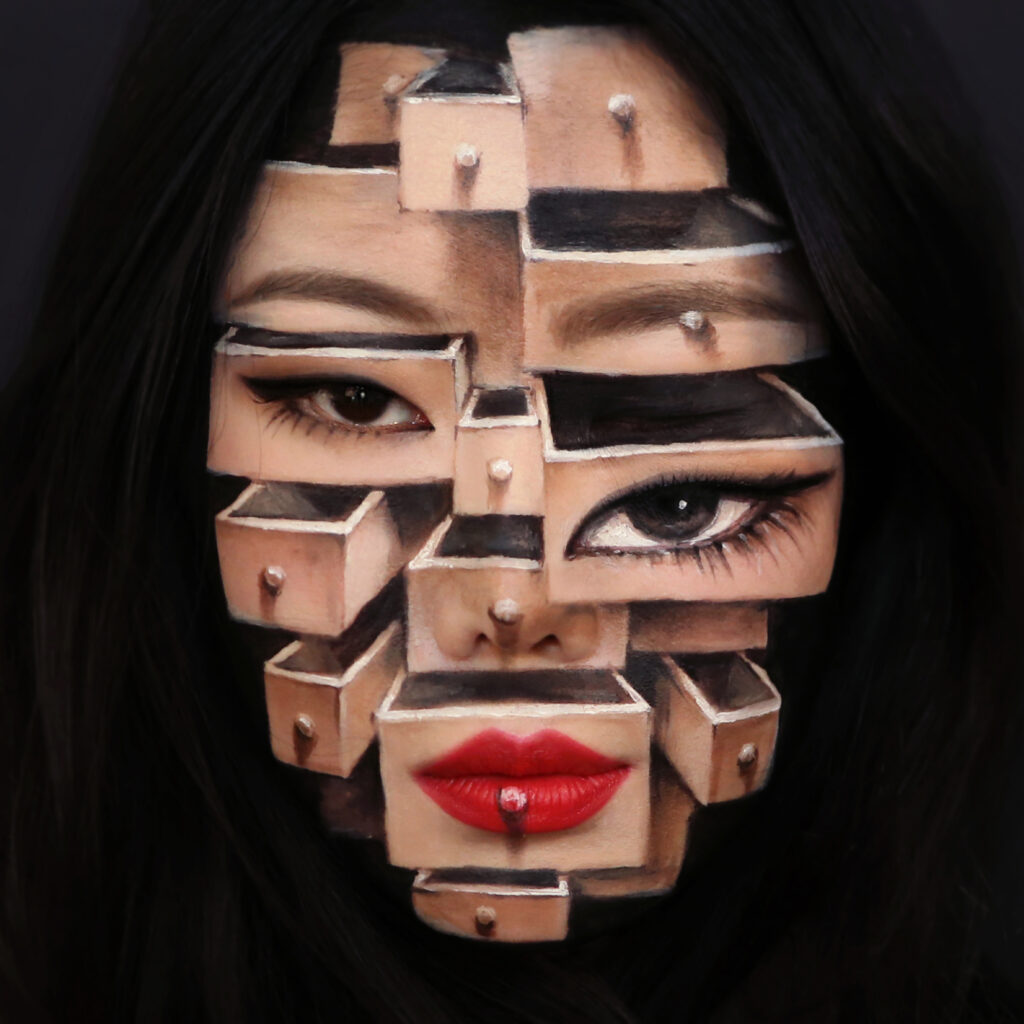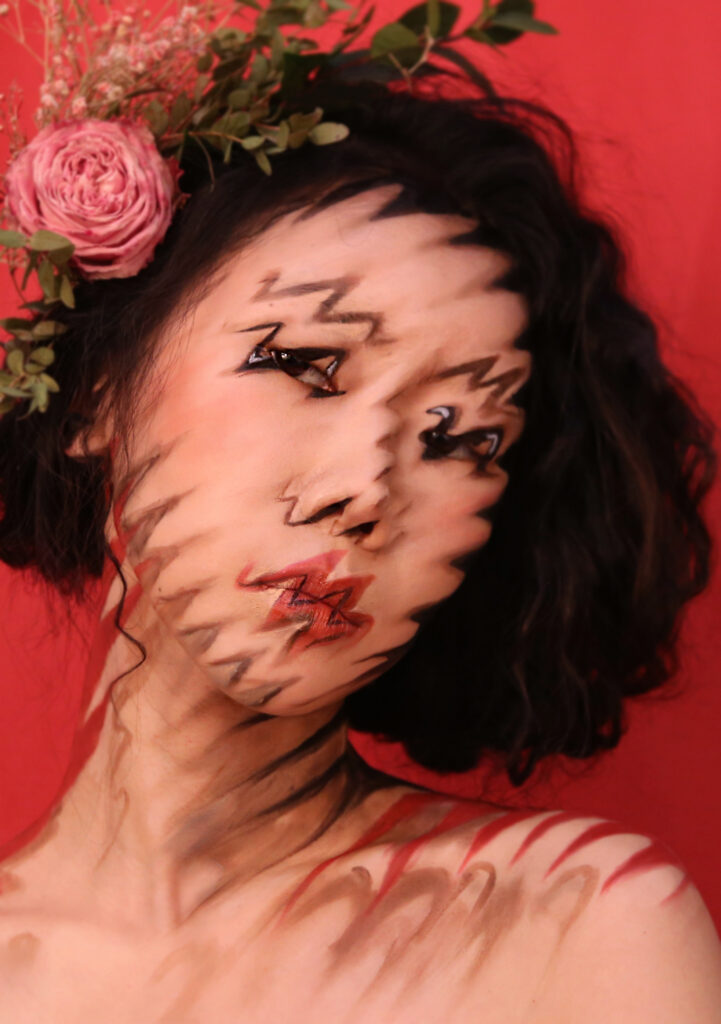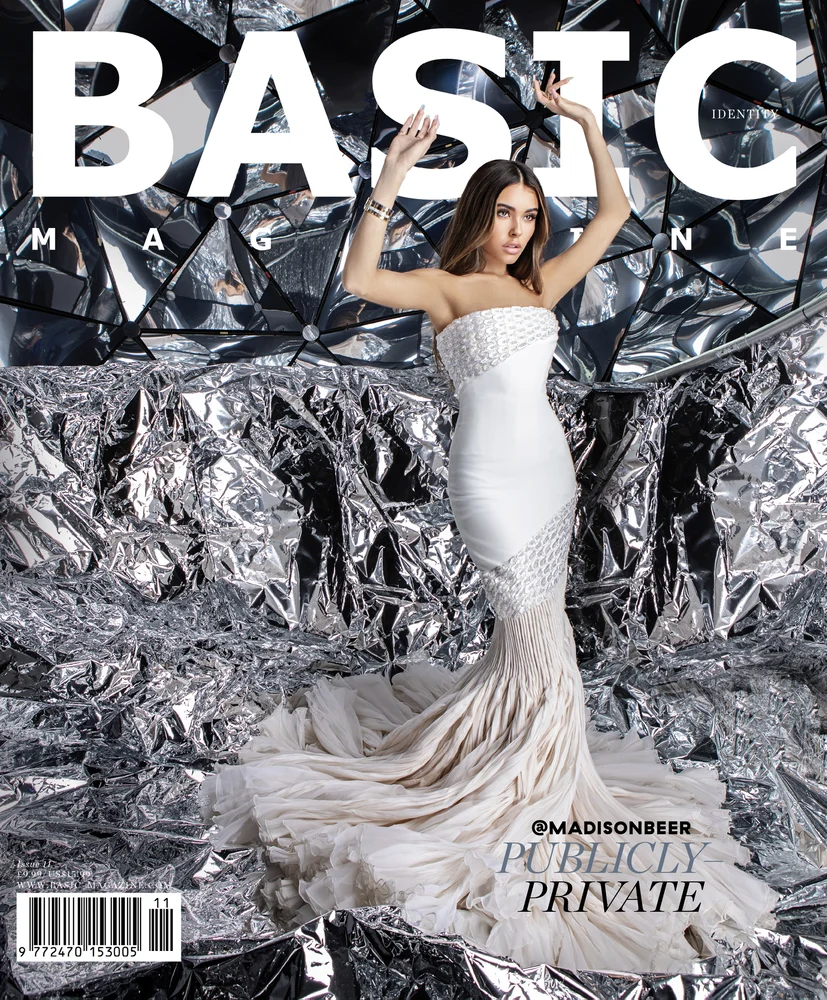Words by Kimberly Haddad

Dani Yoon has introduced a series of psychedelic portraits that challenge the complexity of the human body and its exquisite features. Utilizing a boundless collection of brushes and vibrant paints, the 24-year-old artist from Seoul, South Korea believes her art mirrors the way individuals experience the world in their own subjective way, a theory that has inspired her mind-expanding creations and overall aesthetic. From polymorphic eyes and multiple mouths to blurred effects and intricate details, Yoon paints through a mirror, exploring multifaceted techniques to eloquently express a person’s diversity. And while her work may leave the viewer feeling dazed or bewildered, each painting is 100 percent authentic and shares a unique perspective on our existence.

BASIC: You believe your illusion art mirrors the way people experience the world. Tell us more about these thoughts and how they’ve influenced your overall series.
YOON: Since I was young, around five or seven years old, I started to feel very strong emotions. I’ve even felt like I’ve had every person’s emotion in the world. It made me very interested in how every person thinks and feels differently. I believe this is one of the reasons I started painting at a very young age. It could also just be an excuse because I really didn’t like math! Either way, I’ve always tried to express what I feel about the world, but it was really hard to find a way how. At first, I wanted to be a commercial director, not an artist because I had no idea how to express what I felt. I had done many part-time jobs that interested me like painting, teaching, theatre costume, makeup, graphic design, styling, advertising, etc. After many experiences, I realized that first and foremost, I was a person who really wanted to express herself, not someone else’s concepts and ideas. Those many part-time experiences helped me to understand this. So, I mixed everything that I liked and what I was best at, my emotions and my craft, and this became my “illusion art”.
BASIC: Since your childhood, you’ve had a knack for painting. Tell us about one of your earliest memories painting or creating art.
YOON: Since I was young, I was very good at drawing in a realistic way, not free drawing or abstract. My first memories are those of me practicing still-life or portraits in this way.
BASIC: You once said, “The real face reveals itself underneath the hand that hid it, expressing how the first impression of a person does not tell the whole story.” So, what is your story?
YOON: There is a popular expression, “Do not judge a book by its cover.” People make a decision about someone within three seconds. A first impression is everything. That said, I believe there is another aspect to a first impression. We all know there’s something that lies deeper than that, and that’s what I try to uncover. In regard to my own story, well, since I was young, I had always heard that my face looked fierce, so I was always told I always had to smile, even if and when I felt very different or had strong emotions inside.
BASIC: You create some of the most beautiful, yet complex pieces of art we have ever seen. The paintings are incredibly difficult and time-consuming as you paint through a mirror and never use digital programs to alter your work. Tell us about your overall process.
YOON: First, I have to conceptualize the idea. Then the idea becomes a sketch, and now it exists in its very first visual expression. I especially put a lot of time into my sketches until I get the exact image I have in my mind. Once I am satisfied with my sketch, I start painting and stick to my sketch to a tee so that I do not mess anything up. Before painting though, I need to prepare all the materials I need for output. For example, I also paint my backgrounds or additional objects that will find their way into the frame. After the piece is done, if the final output is photo or video, I will do my own photography as well. When shooting the final work, I need to consider many things such as composition, framing, posing and detailed arrangement of decoration and background, etc. Also, when I take my photos, I do not just try to capture and show the subject itself, but the subject within the environment. I think this comes from my experience with stage design. It made me look at the bigger picture, the whole scene. It helped me move my focus from the subject to the whole surrounding. This is the most difficult part of capturing the right shot. The most rewarding moment is when it all comes out in the way I had imagined it.
BASIC: If you could have a cup of tea with anyone in the world, deceased or alive, who would it be and why?
YOON: Bong Joon-ho, the Korean film director who recently won the Palme d’Or at the Cannes Film Festival 2019. I’ve read in his interview that he wrote the script at a cafe. I’m curious what’s inside his brain and we could talk naturally in Korean.
BASIC: In one sentence, who are you?
YOON: A palette knife of mixed emotions.
BASIC: Tell us a secret.
Yoon: I’ve been thinking the very same thing every night before I go to sleep, since I was six years old until now.
